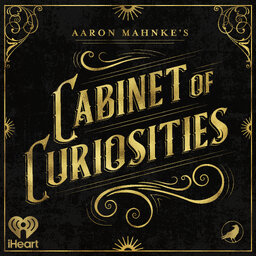Good Soup
Mundane actions often have a curious backstory, as these two seemingly innocent tales from history will prove.
Pre-order the official Cabinet of Curiosities book by clicking here today, and get ready to enjoy some curious reading this November!
 Aaron Mahnke's Cabinet of Curiosities
Aaron Mahnke's Cabinet of Curiosities


